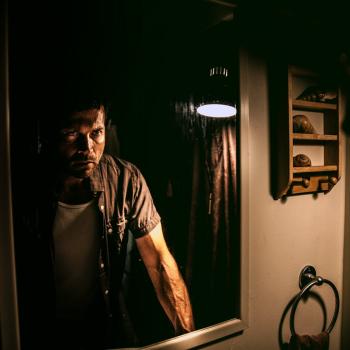 Christopher Anderson, one of my colleagues, is working on a biography of Karl Straube. Straube, who died in 1950, was the Thomaskantor in Leipzig from 1918 to 1939.
Christopher Anderson, one of my colleagues, is working on a biography of Karl Straube. Straube, who died in 1950, was the Thomaskantor in Leipzig from 1918 to 1939.
The Thomaskantor was the choir director of the Thomaskirche (St. Thomas Church). A Lutheran congregation, the Thomaskirche traces the lineage of its music program back to the 13th century, but its best known leader was the renowned Johann Sebastian Bach who served there as cantor from 1723 to 1750. Germans, in general, and the residents of Leipzig, in particular, have long considered both the church and its choir director as the conservators of Bach's contribution to German music.
Over dinner recently, Chris noted that the records indicate that although Straube's connections with it were complex, the great musician was a faithful Nazi. His reasons for participating had nothing to do with anti-Semitism (of which there are only a few subtle hints). But he did believe that German music represented the best music of the world and he also believed that the preservation and propagation of that cultural achievement depended upon the success of Nazi Germany.
There are important lessons to be learned here:
One: The motivations of the herd are never uniform. In some cases, a mob's motivations can be bald, cruel, and morally bankrupt. But that isn't always the case. There are also those who participate for seemingly noble reasons. Lesson: It is difficult to generalize about what motivates the individual member of the herd and we are almost certain to be wrong about its motivations if we generalize from the behavior of one or two people.
Two: It is perilously easy to be manipulated by the herd. Straube was not an advocate of genocide and his motives for supporting Nazism were eccentric. But morally he was as culpable as any other advocate of Nazism. Lesson: You can't join the herd and then decide which of its actions you own morally. You own it all, like it or not.
Three: It is all but impossible to control the actions of the herd. It is not hard to believe that Straube did not have his own doubts about the behavior of the Nazi Party, but having joined the party, he could not "cherry-pick" the behaviors he approved. Lesson: Don't hope to control the behavior of the mob, you can't.
Four: The passions of the mob are a dangerous temptation. It is easy to wade in, Facebook the herd's behavior, and paint it all from a single point of view. But chances are, we really don't know what we are endorsing and it is certain that the uni-dimensional picture we paint of the movement is almost certainly wrong. Lesson: To endorse the mob is to lend whatever moral authority and capital we possess to a herd that is shaped by motives that are foreign, if not hostile to our values.
Five: Mobs are unpredictable and unaccountable. Straube would not have imprisoned, tortured, and killed German Jews, but the Nazi party did and short of embracing martyrdom, there was little he could do and even his own death would not have done anything to keep the Nazi party from pursuing "the ultimate solution" and a global war. Lesson: We cannot assume that the mob will be measured in its behavior and it is morally irresponsible to give our support to movements that do not yield in some ordered fashion to the will of its membership in a democratic fashion—and mobs never fit that description.
It is against that background that this week I have watched the "Occupy Wall Street" movement and Roseanne Barr's call for beheading the rich if they don't pay up or respond to reeducation camps. The lunacy of the mob is finally at large. And while there are no doubt people involved with the best of motives, there are also plainly darker, hateful motives at work.





